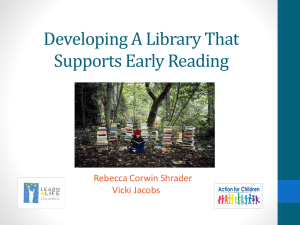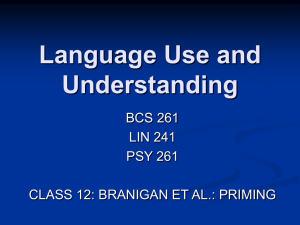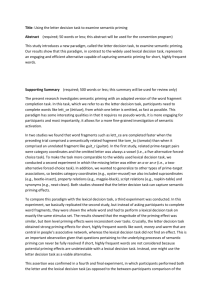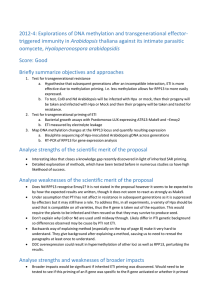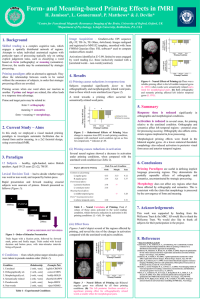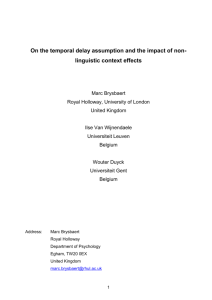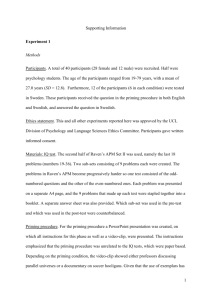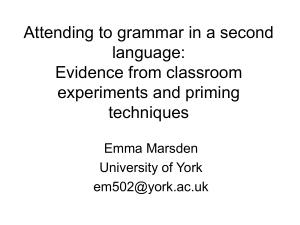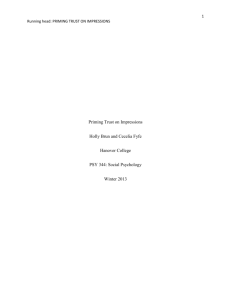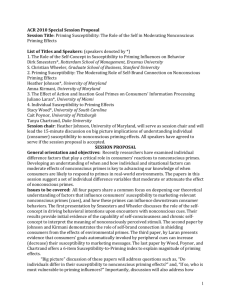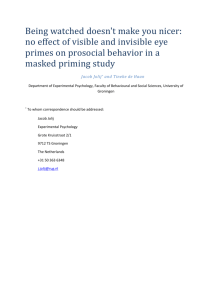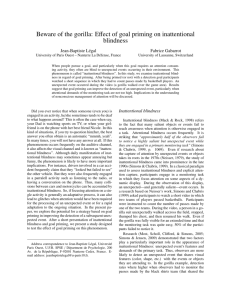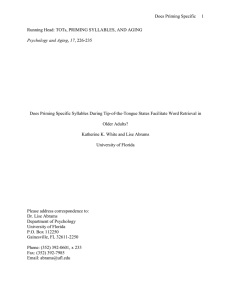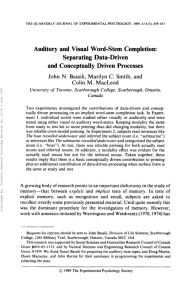Phonological recency effects in natural speech
advertisement
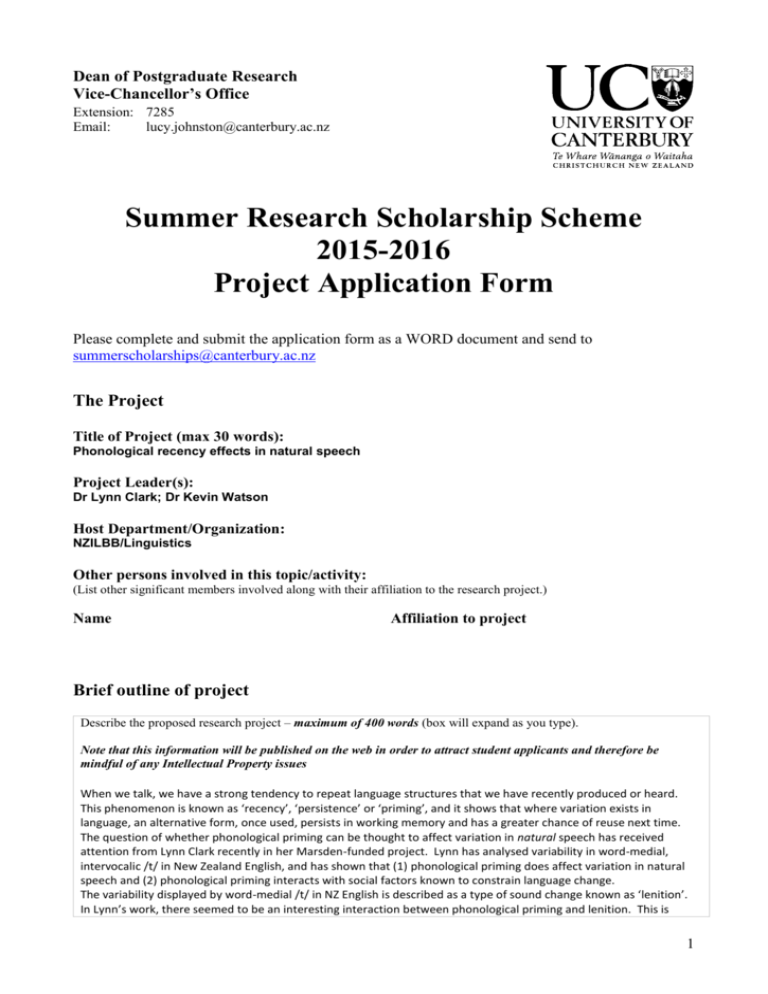
Dean of Postgraduate Research Vice-Chancellor’s Office Extension: 7285 Email: lucy.johnston@canterbury.ac.nz Summer Research Scholarship Scheme 2015-2016 Project Application Form Please complete and submit the application form as a WORD document and send to summerscholarships@canterbury.ac.nz The Project Title of Project (max 30 words): Phonological recency effects in natural speech Project Leader(s): Dr Lynn Clark; Dr Kevin Watson Host Department/Organization: NZILBB/Linguistics Other persons involved in this topic/activity: (List other significant members involved along with their affiliation to the research project.) Name Affiliation to project Brief outline of project Describe the proposed research project – maximum of 400 words (box will expand as you type). Note that this information will be published on the web in order to attract student applicants and therefore be mindful of any Intellectual Property issues When we talk, we have a strong tendency to repeat language structures that we have recently produced or heard. This phenomenon is known as ‘recency’, ‘persistence’ or ‘priming’, and it shows that where variation exists in language, an alternative form, once used, persists in working memory and has a greater chance of reuse next time. The question of whether phonological priming can be thought to affect variation in natural speech has received attention from Lynn Clark recently in her Marsden-funded project. Lynn has analysed variability in word-medial, intervocalic /t/ in New Zealand English, and has shown that (1) phonological priming does affect variation in natural speech and (2) phonological priming interacts with social factors known to constrain language change. The variability displayed by word-medial /t/ in NZ English is described as a type of sound change known as ‘lenition’. In Lynn’s work, there seemed to be an interesting interaction between phonological priming and lenition. This is 1 theoretically interesting because it can help us to understand more about where priming happens (i.e. in the phonetics or the phonology), but as only medial /t/ shows this effect in NZ English, it was difficult to pursue. In some varieties of UK English, other consonants are also undergoing this type of change. This project will therefore explore how phonological priming interacts with lenition explicitly by replicating Lynn’s analysis of medial /t/ in NZ English with other leniting consonants in the North West of England. The student will be trained on extracting and coding phonological data from the OLiVE Corpus (Origins of Liverpool English). If the project involves work away from the University campus (e.g., at fieldwork sites) please detail all locations. N/A If the student be required to work outside of normal university hours (8am-5pm) please provide details N/A Benefits student will gain from involvement in the project Describe the research experience and skills that the student will acquire through involvement in this research project – maximum of 100 words. The project deals with linguistic variation, phonetics and phonology and so it connects directly to several courses in the Linguistics UG programme (LING102, 210, 215, 216, 310, 307). The summer scholar will learn how to put the skills taught on some of those courses into practice in a real research project and so will learn new data management skills. The project leads directly into our honours programme (e.g. LING410, taught by Lynn Clark, and LING 412, taught by Kevin Watson), so it will be valuable practice for anyone hoping to progress to honours level. A main benefit to the summer scholar will be involvement in writing a journal article for publication. The project represents a new line of enquiry, so the summer scholar will be directly contributing to the current state of our knowledge in this area. Specific student requirements Please provide details of all requirements you have for the student to work on this project – for example, if specific courses/experience are necessary. The student should have done at least one of the following courses: LING210; LING310. Preference will be given to students who have also done at least one of LING 215 or LING 216 too. 2
